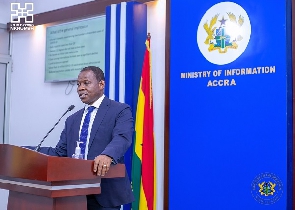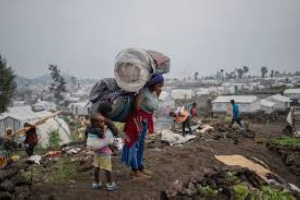Research and Counselling Foundation for African Migrants (RECFAM), an international organisation, in collaboration with the Aowin Municipal Health Directorate of the Ghana Health Service (GHS) has launched a project to eradicate yaws and elephantiasis from the Aowin Municipality.
The two-year project, with support from the Anesvad Foundation, would be implemented across thirty selected communities. In the Municipality.
“Combating Yaws and Lymphatic Filariasis (LF) through sustainable awareness raising, economic empowerment, provision of clean drinking water and improved sanitation,” is the theme for the project.
Key activities RECFAM and its stakeholders would undertake included; the provision of boreholes and toilet facilities for schools/communities, registration of LF/Yaws patients onto the National Health Insurance Scheme to access quality health care as well as the provision of climate-smart technology to produce drinking water from the atmosphere.
Others are piloting the distribution of Green Stove for clean cooking that uses special reusable rocks and charcoal briquettes – smoke-free to LF patients which they can use for two years.
This would ease the stress they go through fetching firewood to prepare their meals.
Also, financial support would be offered to beneficiaries to set up their own businesses since they cannot work. RECFAM has identified some institutions and would probe further to find out if they would accept LF patients because of their deformity
An Fm radio station would be installed for the sustainability of public awareness education on Yaws, LF and other Skin-NTDs. That would also be broadcast through the CCC in the 30 selected communities and online to ensure the information was well disseminated.
Speaking at the launching, Alfred Mbinglo, Director, RECFAM, said last year, 1,567 suspected cases of Yaws were identified in Aowin Municipality.
Out of 276 tested, 150 were diagnosed positive.
The Director said LF was also endemic in two of the nine districts of the Western North Region, and these were the Aowin and Suaman districts.
According to him, the NTDs Programme started implementing annual Mass Drug Administration (MDAs) from 2004 and achieved interruption of transmission of the disease in 2014 and since then they stopped in these districts.
However, Dr Mbinglo said the provision of morbidity management and disability prevention services has not been successful, adding that, stigmatization and social rejection excluded patients from engaging in commercial activities since people refused to engage with them.
HMr Samuel Adu Gyamfi, Municipal Chief Executive (MCE), who launched the project pledged to offer the needed assistance to RACFAM to ensure the project achieved its objectives.
The Municipal Health Directorate of GHS, Mr Abass Asigri, for his part said, the commonest symptoms for yaws is rashes.
He indicated that, “Most of the time people resort to herbal preparations but my advice is that go to the hospital and then we will diagnose whether it is yaws or not, rather give you the appropriate treatment.”
Madam Shirley Blankson, Municipal Director, Ghana Education Service, in a solidarity message promised to help in educating the public to create the sustainable awareness of the disease in their respective communities.
“We from the GES hold this programme in high esteem because it will go a long way to support our leaders and teachers in communities which do not have clean drinking water as RECFAM is ready to support such communities with clean drinking water and improve upon sanitation” she added.
Nana Adu-Kwame III, Chief of Nyankaman, expressed his profound gratitude to RECFAM, GHS and Anesvad Foundation, and called on the beneficiary communities to help make it successful.
The programme was attended by heads of departments, traditional authorities, clergy, Muslims, second-cycle institution and Junior High Schools.
Neglected tropical diseases (NTDs) are a diverse group of 20 conditions that are prevalent in tropical areas, where they mostly affect impoverished communities and disproportionately affect women and children.
Health News of Sunday, 28 May 2023
Source: GNA

















